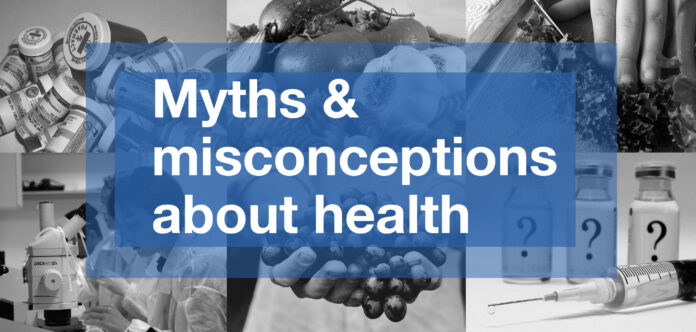There are numerous misconceptions about what autism is, what the causes are and how it is experienced. Autism, like any other disorder, is complex and variable. Unfortunately, it gets simplified by many of the misunderstandings surrounding it. I want to highlight five of the many myths people have about autism, in the hope that readers will gain insight into the complexity of the disorder.
Tendency to homogenize autism
One misunderstanding that people have is that everyone with autism has more or less the same experience and set of symptoms. Generally, it is assumed that they are all socially withdrawn, non-communicative, unresponsive and engage in repetitive or self-abusive behavior. However, autism is not a homogenous disorder— it is a spectrum disorder. This means that autism is a broad category containing various forms of the disorder. The disorder ranges from mild to severely impaired. Some people may have Asperger’s syndrome or may be high functioning autistics, either being mild cases.
It is incredibly difficult to predict the child’s future, especially considering the immense variability in diagnosis and treatment. For example, at age three, two children may exhibit the same set of symptoms indicating that they have a severe form of autism. However, only one of them may end up significantly recovering, while the other may not. Unfortunately, there is no standard method of determining how the child’s disorder will end up. To illustrate, Temple Grandin, an autistic woman, was labeled as severely impaired at the early stages of her disorder. She is now a Professor of animal science, an autism activist and has published a bestselling book. Grandin even has her own biographical film.
Tendency to fear autistic individuals
People unfamiliar with autism tend to be easily frightened by the autistic. This might be due to their outsider perspective. It is assumed that if a person cannot articulate what a majority considers culturally appropriate, or that they do not follow social norms of communication, then that person is crazy, weird or scary. If you think back and reflect, how many times have you turned away from a disabled person, afraid to look them in the eye? How many mothers have you seen tell their children to look away from a disabled person? Although it may be unusual to be socially withdrawn, non-communicative or unresponsive, it does not legitimize these reactions.
People with autism are cold and unempathetic
People with autism tend to be characterized as uncaring and cold. However, it is not that they are incapable of feeling, rather that they have difficulty reading other people’s emotions. To empathize with somebody, you need to be able to read their emotions, communicate your sentiments and have a mutual cultural understanding of how to appropriately display empathy. This is a difficult task for autistic individuals because many of them have trouble reading faces and making eye contact. The ability of reading body language is crucial to empathy, but it is an ability difficult to obtain for autistic individuals. In addition, many people have problems with nonverbal and verbal communication, so even if they do feel empathy, they may have difficulty expressing it. Thus, autism’s so-called unfeeling nature is more likely due to a lack of social communication, rather than a lack of emotional response.
Vaccines Cause Autism
Many people blame vaccines for their child’s autism. It was believed that the preservative, Thimerosol, contained in vaccines might increase the risk of autism. However, studies have yet to indicate this link; in fact, many studies suggest the rejection of this claim. There have been nine CDC funded studies disregarding the link between autism and vaccines. The vaccines are incredibly safe and beneficial.
“Refrigerator Moms” Cause Autism
There was an assumption, particularly in the 1950s, that autism resulted from cold and distant parents. However, there is no indication that parenting causes autism, especially considering that it is a problem with neurological development. That is not to say that parenting has no influence over the experience of autism. Of course, abuse and neglect would hinder recovery, whereas deep care and acceptance would facilitate it.
Tiffany Marquez can be reached at tmmarquez@ucdavis.edu.
Graphic by Tiffany Choi.




